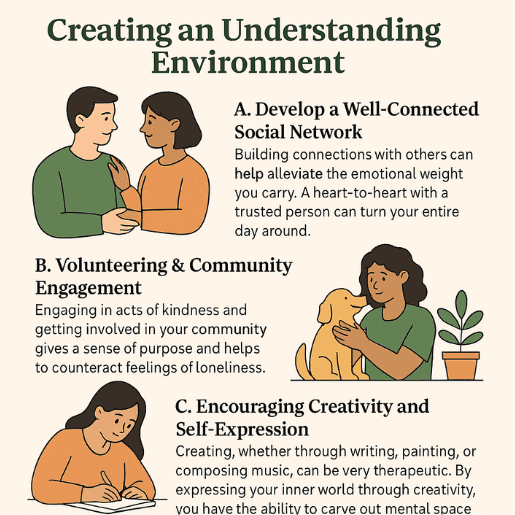When time feels heavy upon us, the smallest intervals can register as a stratospheric challenge. Learn practical yet powerful strategies to manage this emotional baggage and reconnect to your gifts and soul purpose.
Understanding the Idea of Time Feels Heavy
Have you ever had an experience where everything went still, and it felt as if time stood still? That strange feeling where every hour makes itself long and heavy, and also empty. Time is not just passing on the clock; it’s closing in on you. This phenomenon is not simply figurative — it’s deeply psychological. By “time feeling heavy,” we’re referring to a mental and emotional state where every passing second feels too burdensome, prolonged, or emotionally overwhelming.
Frequently, the onset is due to emotional burnout, cognitive overload, or lingering past events, this weight shifts our experience of time. Days blend into one another. Tasks loom large. Even moments of rest offer no relief. That awareness is the first step to doing something about it. It’s not slothfulness. It’s not frailty. It’s a signal that your mind and spirit need solace.
Recognizing the Signs of Heavy Time

A. Emotional Indicators
Indications of emotional numbness or irritability can arise as time drags on. Doing simple things like responding to a message or making a basic decision can trigger annoyance. “Over and above the sadness that comes in waves is a kind of constant feeling of blue, of emotional fatigue, of disconnection from happiness, of no sure sense of what will be coming next. This flatness of emotion lends the impression that time should be passing more slowly than the real world warrants.
B. Physical Manifestations
Physical manifestations may accompany a sensation of heaviness. You feel consistently fatigued despite rest, enduring tension in muscles, regular headaches, and the sensation of inertia in your body. Some people describe this sensation as moving sluggishly through thick corn syrup or having abnormally weighty limbs. This connection between body and mind has a lot to do with how your stress and emotions are processed.
C. Behavioral Changes
A person may start to pull away from the social events and activities they used to enjoy. Now, procrastination kicks in not because you are lazy but because of emotional blockages. Excessive binge-watching, obsessive scrolling, or even oversleeping can be ways to avoid the weight of the moment. These behaviors point to deeper issues that deserve to be addressed.
Common Reasons for the Feeling of Weighty Time

Stress and Overwhelm
The brain shifts to survival mode when daily duties pile up without letup. Chronic stress can cause the nervous system to misfire, and how time can feel, well, too much. And C has a to-do list, but internally, they are in the middle of a storm. If your to-do list feels like a ticking time bomb, you’re probably experiencing the kind of stress that warps your perception of time.
The Role of Depression and Anxiety in Time Perception
Both depression and anxiety have significant effects on time perception. In depression, time drags painfully; in anxiety, it’s a race that never seems to reach a finish line. Most people with depression claim to have a pronounced sense that time is passing more slowly, which can exacerbate feelings of hopelessness and desolation, in a study published in the journal Psychopathology.
Adjusting to Life Changes and New Stages
Life changes such as grief, moving, job transitions, or even positive events like entering a new relationship or giving birth can jolt your internal balance. Time may feel distorted while your mind gets used to this new reality. It is normal in times like these to feel a sense of slow motion or out of sync with the world.
The Effect of a Heavy Time on Health

A. Effects on Psychological Health
The pressure of unchecked time can manifest in deeper mental health problems. You may feel worthless, helpless, or sad for a long time. This can also make it harder to regulate our emotions and think clearly. Heavy overtime has a slow drip effect on self-esteem and emotional energy.
B. Impact on Relationships
Emotionally being out of reach, even when your body is around, turns out to be harmful for relationships. Conversations might seem strained, responses short, and intimacy can fade. Family or friends may find it difficult to understand what you are going through, which can compound your feelings of isolation. Emotional distance can also widen, sometimes without notice, adding more strain to the relationship.
C. Impact on Productivity and Motivation
Keeping your focus and energy up gets harder and harder. Jobs that used to take 30 minutes now may take hours. It’s not that productivity has stalled; rather, emotional resources are depleted. This cycle can create guilt, leading to underachievement and self-blame.
Strategies for Surviving Heavy Time
A. Meditation and Mindful Living Practices
Engagement in mindfulness roots you in the here and now, minimizing mental flapdoodle while relief from the burden of time evanesces. Recalibrating your nervous system with techniques like guided meditation, deep breathing exercises, and body scans can help you feel more in control of your body again. Even just a five-minute mindfulness session can provide clarity and peace of mind. Headspace and Insight Timer are really helpful starting-off points for complete amateurs.
B. Changing Daily Activities
Structure doesn’t need to be a rigid thing. Establishing gentle practices, like spending a few minutes stretching, journaling, or taking a walk, can reshape your day. That sounds silly, but breaking things down into manageable steps and allowing small bursts of joy, like a song or the sunshine, can help a lot. To read about daily routine strategies that build mental resilience, go to [Mind-Waves.org] and visit [Mind-Waves.
C. Seek Professional Help
Understand that seeking help and guidance is not weak. Therapists and counselors can offer specialized skills and techniques tailored to your situation. There has been an increasing availability of therapeutic support through online services. If constant feelings of heaviness over a long period interfere with how you function in daily life, think about reaching out to a mental health professional.
Changing Your Mindset About Time
A. Gratitude practice
Being grateful takes your eyes away from what you do not have and homes them on the wealth that surrounds you. Begin by being thankful for little things: your breath, a friend’s presence, a moment of stillness. Making this small tweak changes the way you experience time so that instead of it seeming like a curse, it becomes a precious gift.
B. Build Meaningful Objectives
It gives your life meaning by setting goals, but that needs not only to be efficient–it must also be rewarding. The goal of your life is, however, these days fulfilled by such different things as learning a new language, poetry, and spending more time at home and with loved ones. These pursuits sustain the fabric of everyday life with emotional strength. The drive to succeed was part of what kept Viktor Frankl alive in the concentration camps. He who possesses a powerful reason for living can withstand almost any challenge,” as eloquently phrased.
Creating an Understanding Environment

A. Develop a Well-Connected Social Network
Building connections with others can help alleviate the emotional weight you carry. A heart-to-heart with a trusted person can turn your entire day around. Having full support from even just one person who understands what you’re going through can have a big impact. Relationships provide the emotional support we all need.
B. Volunteering & Community Engagement
And engaging in acts of kindness and getting involved in your community gives a sense of purpose and helps to counteract feelings of loneliness. Mentoring, sharing gardening experiences, and working for an animal rescue organization: by serving others, your spirit will feel edified, and the value of what you give of your time will be a shared experience.
C. Encouraging Creativity and Self-Expression
Creating, whether through writing, painting, composing music, or journaling your feelings, can be very therapeutic. By expressing your inner world through creativity, you have the ability to carve out mental space. It’s not necessary to be flawless, but it’s important to be sincere in your communication.
Self-Care Practices for Managing Heavy Time
A. Prioritizing Sleep and Rest
Sleep is essential for emotional processing, not just something from which we happen to gain relief. Establish a bedtime routine by dimming the lights, switching off devices, and reading something soothing. Strive for 7–9 hours of sleep and remember the rejuvenating effects of short naps.
B. Maintaining a Balanced Diet
Your brain and gut are closely linked, more than many people know. Stick to eating whole foods, staying hydrated, and avoiding processed sugar to help regulate your mood. Think about incorporating brain-boosting nutrients like omega-3s and magnesium into your diet.
C. Engaging in Regular Physical Exercise
Exercise is more than just a way to stay fit—it’s a potent mood enhancer. Engaging in activities such as walking, yoga, or dancing can trigger the release of endorphins and rejuvenate your mindset. For introductory workout plans or resources, check out our article: Exercise in Everyday Busy Life.
Finding Purpose and Meaning
A. Exploring Personal Passions and Interests
Return to what lights you up. It might be something from childhood or a curiosity you’ve never explored. Hobbies create flow, where time becomes fluid rather than heavy. Follow what brings joy, not just what looks productive.
B. Volunteering and Community Involvement
Helping others provides meaning and helps alleviate feelings of isolation. Whether through mentoring, community gardening, or animal rescue, acts of service uplift the spirit and give shared purpose to time.
C. Cultivating Creativity and Self-Expression
Engaging in writing, painting, music, or journaling your emotions can be profoundly therapeutic. Creativity enables you to externalize what is internal, making room in your thoughts. Skill level is not a requirement — rather, expressiveness is key.
Surrendering To Natural Rhythms Of Time
There will be days that feel as refreshing as crisp air, filled with promise, and other days that feel like moving through a haze. This is like being human. The trick is not to escape time but to respond to it, to reframe it, but most of all, to find meaning in it.
During times when time seems like a burden, don’t hurry past it, as much as you might want to. Instead, sit with it, notice it, and little by little, day by day, try to take its burden away from you.
Related Post:- What Are Biological Rhythms?
FAQ
1. How long does heavy time typically last?
It varies from person to person. You find some people whose sense lasts only days for them. When you feel like this, it is important to seek help right away.
2. Does [medication] work to relieve the stress of time?
If the issue is tied to specific clinical conditions (such as depression or anxiety), medications prescribed by healthcare professionals may be included as part of a larger approach to treating the problem.
3. Are certain populations more prone to feeling that time is slipping away from them?
Going through transitional periods, whether it be adolescents transitioning into young adulthood, young adults transitioning into adults in midlife, adults in midlife transitioning into older age or post-retirement, naturally elicits stronger feelings of this sort based on shifts of the self.
4. How can I help a loved one who is suffering from a sense of time being too much?
Be present and attentive without immediately offering solutions. Encourage them to seek professional assistance.
5. Will there be less emphasis on the final moments of time perception in the future?
We can’t guard against every emotional disruption, but conscious emotional awareness, maintaining normal schedules, and building a strong support system.
When time feels unbearably heavy, remember—you’re not stuck, you’re just paused. Start by choosing one strategy from this guide and applying it today. Small shifts create powerful momentum. For more tools, insights, and support on your healing journey, explore our latest blogs at mind-waves.com. You deserve to feel lighter, more present, and fully alive.
Disclaimer:
This blog is for informational purposes only and is not a substitute for professional medical advice or treatment. Always consult a medical professional for any health concerns.

